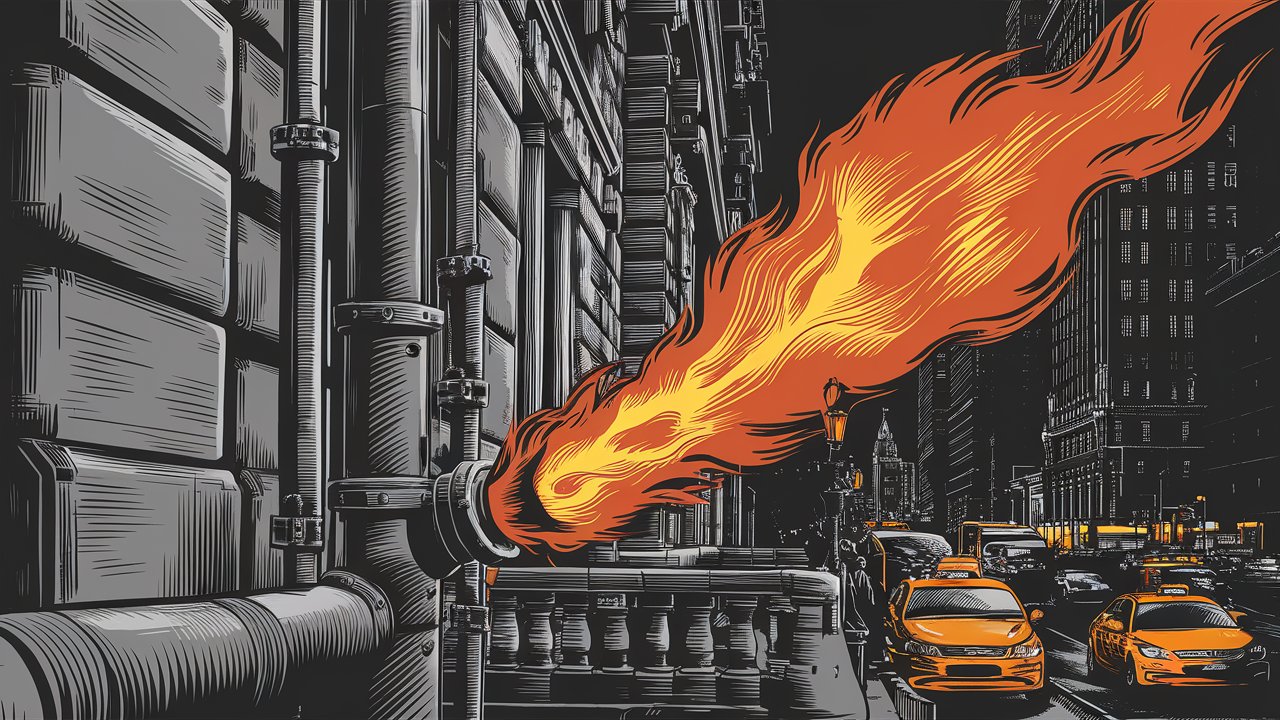The Gas Company is responsible for the main gas lines that run from the street to the property line, while property owners are responsible for the gas lines that extend from the property line to the building. Knowing who to contact for gas leaks and understanding your responsibilities can help you address and resolve issues quickly and safely.
If a gas leak is suspected outside your home or building, it’s crucial to take immediate action to ensure safety. Identifying the source of the leak and notifying the appropriate party helps prevent hazardous situations and ensures proper repair and maintenance of the gas system.
Call Your Gas Company If You Notice Any Gas Leak Signs Outside Your House Or Building
Gas leaks can be dangerous and require prompt attention. Recognizing the signs of a gas leak and reporting them immediately to your gas company can prevent accidents and ensure quick response. Here are some common signs to watch for:
1. Smell of Rotten Eggs
The smell of rotten eggs is one of the most common indicators of a gas leak. Gas companies add a sulfur-like odor to natural gas to make leaks detectable, as natural gas is otherwise odorless. If you detect this smell, it’s important to evacuate the area and contact your gas company immediately. This odor can indicate a serious leak that requires professional inspection and repair.
2. Hissing Sounds
Hissing or whistling sounds near gas lines or equipment can signal a gas leak. This sound occurs when gas escapes from a damaged or loose connection. If you hear hissing sounds, avoid using electrical switches or devices and leave the area quickly. Report the issue to your gas company to have it inspected and fixed promptly.
3. Air Bubbles Outside Your Home
Air bubbles forming in puddles or wet areas near your home can be a sign of a gas leak. This occurs when escaping gas travels through the soil and rises to the surface. If you notice air bubbles in the ground, it’s crucial to avoid the area and contact your gas company for a thorough inspection. Gas leaks underground can pose significant risks and need immediate attention.
4. Dead or Dying Plants
Dead or dying plants near your gas lines can indicate a gas leak. Natural gas can damage plant life by displacing oxygen and affecting the soil’s health. If you observe that plants are dying in a specific area, investigate for potential gas leaks and report the issue to your gas company. They can determine if a leak is causing the problem and take appropriate action.
5. Physical Symptoms of Natural Gas Poisoning
Physical symptoms such as headaches, dizziness, nausea, or fatigue may result from exposure to natural gas. If anyone in your household experiences these symptoms and you suspect a gas leak, seek medical attention immediately. Ensure that your gas company is notified to inspect and resolve the leak to prevent further health risks.
6. Higher-Than-Normal Gas Usage
Unusually high gas usage can be a sign of a leak or malfunction in your gas system. If you notice a significant increase in your gas bill without a corresponding increase in usage, it may indicate a leak. Contact your gas company to investigate the cause of the higher usage and to address any potential leaks or system issues.


